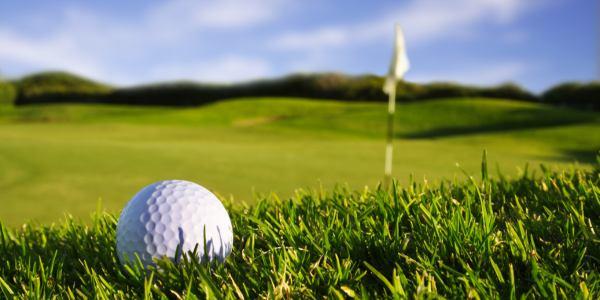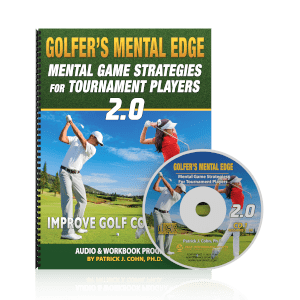
Do You Usually Feel Prepared and Confident?
There is a direct relationship between preparation and confidence. As preparation increases, so does confidence…And every athlete and coach understands how a confidence boost affects performance.
From our Golf Mental Game Survey, we received the following question from a coach:
“How can I better prepare my golfers to play confidently in major tournaments?”
First, let’s break down preparation into two components. One component is physical preparation. Physical preparation lays the foundation for trust in your abilities.
Physical preparation includes:
- Working on your mechanics
- Playing practice rounds
- Refining your tee shots at the driving range
- Strength training and conditioning
- Flexibility work
- Rest and recovery
- Rehabbing injuries
- Eating a proper diet
The other component is mental preparation. While physical preparation lays the foundation, mental preparation allows you to keep raising your game higher.
Mental preparation includes:
- Improving confidence
- Building trust in your game
- Managing emotions during a round
- Focusing and refocusing strategies
- Overcoming mistakes
- Dealing with pressure
- Performing consistently at your peak
Imagine how well you would play if you combined physical and mental preparation.
One mental strategy that is easy to implement and can take your preparation to another level is to familiarize yourself with the course prior to competing.
Scoping out the course and getting intel from other golfers about the course provides a significant mental advantage.
Even a shot off-target won’t throw you off your game since you have a greater “familiarity” with the course.
Instead, you will feel prepared and confident in how to recover on your next shot. Paying attention to the details will take your game to a whole new level.
PGA golfer Wyndham Clark won his first career major at the 2023 U.S. Open edging Rory McIlroy by one stroke. The victory helped Clark climb to 13th in the Official World Golf Rankings.
Clark prepared by asking Preston Fielding, a two-time All-Ivy League golfer at the University of Pennsylvania, for insight about the course.
CLARK: “[Fielding] is a good player, and he really knows the golf course. [The 18-hole practice round with Fielding] was the equivalent of probably playing 27 to 36 because he was telling me how certain putts– how they break, how this one is faster than this, this plays this way. He was spot on. So when I left that practice round on Tuesday, I felt like I could have come here and not even played a practice round. I felt like it was that in-depth.”
You can think of mental preparation as the “secret sauce” to peak performance on the golf course. Any added preparation you undertake gives you a mental edge over your competition.
Next time you play in a tournament, scope out the course beforehand. Play a practice round. Get to know the greens and the pace of the greens…
Look for some intel from golfers who have played the course. Increased preparation can take your golf game from good to great.
Related Golf Psychology Articles
- Take Control of Your Golf Confidence
- How Top Golfers Manage Pre-Round Worry
- How Jason Day Overcame a Winning Drought
- Subscribe to The Golf Psychology Podcast on iTunes
- Subscribe to The Golf Psychology Podcast on Spotify
Golfer’s Mental Edge 2.0

Do you suffer from fragile self-confidence after missed hitting shots or making mistakes, playing with strict or high expectations that undermine confidence, or the inability to play freely and relaxed on the course?
Successful golfers have learned how to perform with ultimate confidence in competition, so we’ve developed The Golfer’s Mental Edge 2.0 Workbook and Audio program to help you do this!
The Golfer’s Mental Edge 2.0 program includes the top 11 mental training sessions I do with my personal students to help them boost their mental game and improve consistency on the course!